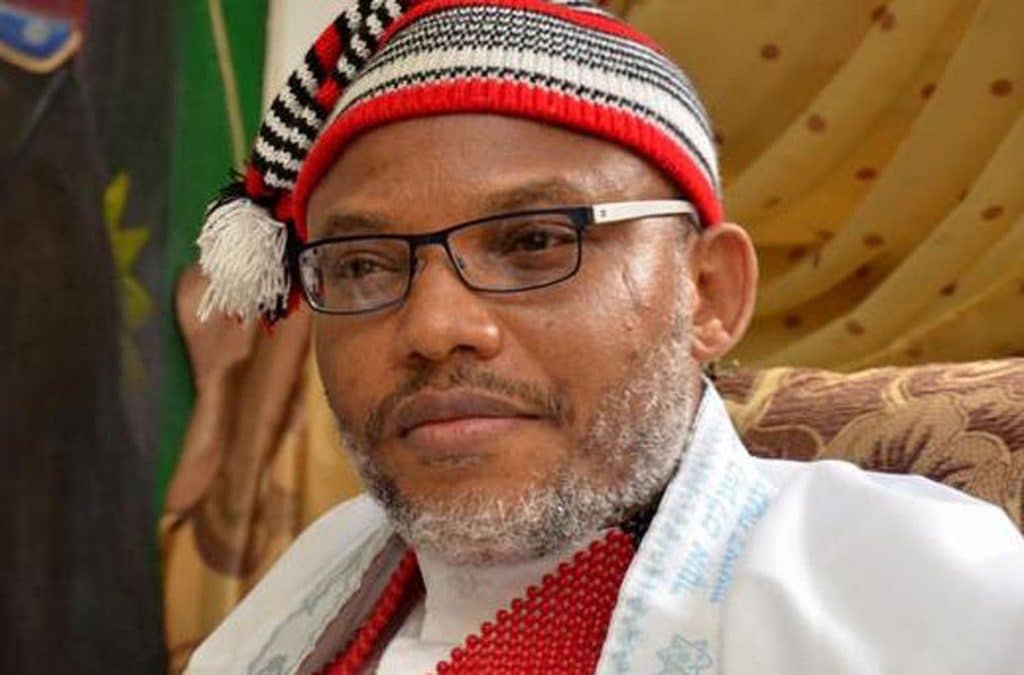
Nnamdi Kanu
Nnamdi Kanu has written the Attorney General of the Federation, AGF, Abubakar Malami demanding for justice over his arrest and torture in Kenya.
The leader of the Indigenous People of Biafra, IPOB, has now made five demands.
Kanu was arrested in an African country believed to be Kenya and repatriated in June 2021.
This was due to his agitation for the restoration of Biafra. He fled Nigeria in 2017 after Justice Binta Nyako of an Abuja Federal High Court granted him bail.
However, the IPOB leader disclosed that he was tortured and subjected to inhumane treatment after his arrest in Kenya.
To this end, the IPOB leader urged Malami to investigate and prosecute all those involved in his torture, in line with the provisions of the Anti-Torture Act of 2017.
In a letter to Malami, Kanu said all those who tortured him during his arrest in Kenya and detention in Nigeria should be punished.
He made the call in a letter signed by his Special Counsel, Aloy Ejimakor, detailing how he was arrested and tortured in Kenya and Nigeria.
Kanu also urged the AGF to ensure his protection while in the custody of the Department of State Services, DSS.
The letter reads partly: “In view of the forgoing, we hereby make the following Prayers: That, consistent with the provisions of the Anti-Torture Act, 2017, the office of the Attorney-General take prompt measures to initiate the prosecution of all persons that were directly or indirectly culpable in the torture of our Client. For your ease of reference, Section 5 of the Anti Torture Act provides that: “A person who has suffered or alleges that he has been subjected to torture shall have the right to complain to and to have his case promptly and impartially examined by a competent authority.
“The competent authority under subsection (1) shall take steps to ensure that the complainant is protected against all ill-treatment or intimidation as a consequence of his complaint or any given evidence.
“That the said prosecutorial action be levied, in line with Section 8 of the Anti Torture Act, which provides that ‘A person who actually participates in the infliction of torture or who is present during the commission of the act is liable as the principal.’
“An order from a superior officer or from a superior in the office or public authority shall not be invoked as a justification for torture.
“The immediate commanding officer of the unit concerned of the security or law enforcement agencies is held liable as an accessory to the crime for any act or omission or negligence on his part that may have led to the commission of torture by his subordinates.
“In conclusion, we call your attention to the provisions of Section 1 of the Anti Torture Act, which states that ‘The Government shall—(a) ensure that the rights of all persons, including suspects, detainees and prisoners are respected at all times and that no person placed under investigation or held in the custody of any person in authority shall be subjected to physical harm, force, violence, threat or intimidation or any act that impairs his free will: and (b) fully adhere to the principles and standards on the absolute condemnation and prohibition of torture set by the Constitution of the Federal Republic of Nigeria and various international instruments to which Nigeria is a State party’”.




